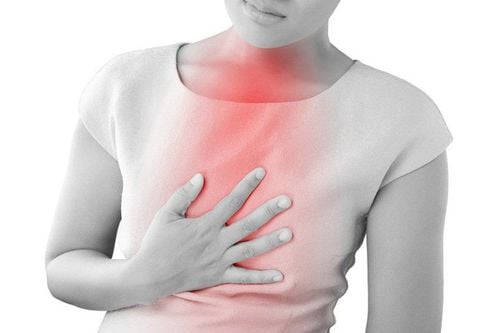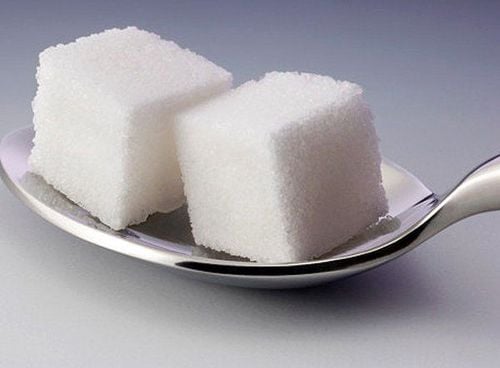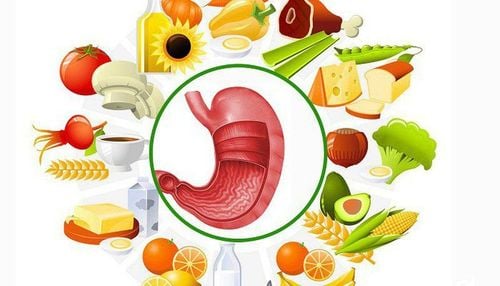This is an automatically translated article.
These days, whether at home or going out, we have a multitude of food choices, which in turn can lead to overeating. One way to control this habit is to first understand how overeating affects your body. Here are 7 harmful effects of eating too much.
1. When you eat too much?
Overeating can affect your sleep, weight and organs in the short and long term. Find out what really happens to your body when you overeat.
Overeating can lead to unwanted weight gain and carrying excess weight can increase cancer risk.
But it's not just about unwanted calories. Overeating affects your body in different ways.
2. What happens to your body when you eat too much?
Overeating causes the stomach to expand beyond its normal size to accommodate large amounts of food. An enlarged stomach will push back other organs that make you uncomfortable. This discomfort can take the form of feeling tired, sluggish, or sleepy. Your clothes may also feel tight.
When you eat a lot of food, it means that the parts of your body work increase. They secrete extra hormones and enzymes to break down food. To break down food, the stomach produces hydrochloric acid. Consuming too many high-fat foods, like pizza and cheese sandwiches, can make you more prone to heartburn.
Your stomach can also produce gas, causing you to have an uncomfortable feeling of fullness. Your metabolism can speed up as it tries to burn off those extra calories.
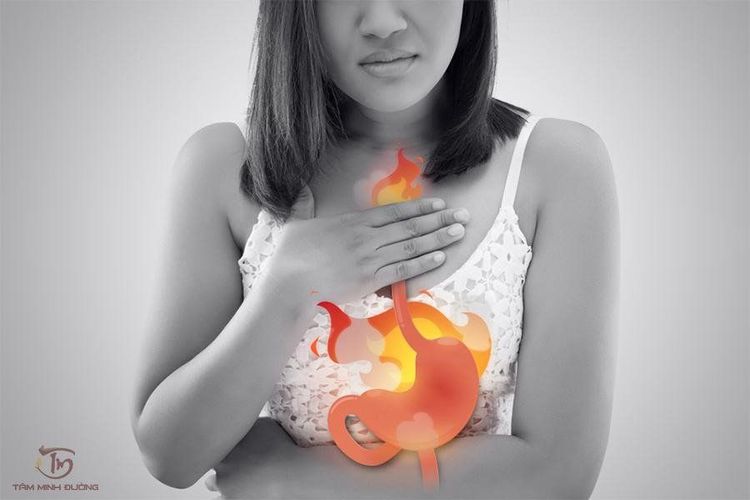
Tiêu thụ quá nhiều thực phẩm chứa nhiều chất béo sẽ dẫn đến ợ chua
3. 7 ways to affect the body if you eat too much
3.1. Can promote excess body fat
In the process of daily eating, you eat too much compared to normal, then a calorie surplus occurs. Your body then stores the excess calories and converts them to fat.
Overeating can be particularly problematic for developing excess body fat or obesity as you may be consuming more calories than you need. That said, consuming too much protein is unlikely to increase body fat due to the way it is metabolized. Excess calories from carbs and fats are much easier to increase body fat.
To prevent excess fat gain, try adding lean protein and non-starchy vegetables before eating foods that are high in carbs and higher in fat.
3.2. Can break the hunger rule
Two main hormones influence hunger regulation - ghrelin, which stimulates appetite, and leptin, which suppresses appetite. Then, after you've finished eating, the amount of leptin tells your body that you're full.
However, eating too much can disrupt this balance. Eating foods high in fat, salt, or sugar releases feel-good hormones like dopamine, which activate pleasure centers in your brain.
Over time, your body may associate these feelings of pleasure with certain foods, which tend to be high in fat and calories. This process may eventually override hunger regulation, encouraging you to eat for pleasure rather than hunger.
Disruption of these hormones can cause permanent overeating cycles. You can counteract this effect by breaking down certain feel-good foods and eating them at a slower rate so that your body feels full.
3.3. May increase the risk of disease
Although frequent overeating may not affect long-term health, chronic overeating can lead to obesity. In turn, the condition has repeatedly been shown to increase the risk of disease.
When BMI is 30 or more, it is called obese. This cluster of conditions increases your risk of heart disease and other health problems, such as diabetes and stroke.
Signs of metabolic syndrome include high blood fats, elevated blood pressure, insulin resistance, and inflammation.
Insulin resistance itself is strongly linked to chronic overeating. It develops when excess sugar in your blood reduces the ability of the hormone insulin to store blood sugar in your cells.
If your body does not control and control it, insulin resistance leads to type 2 diabetes.
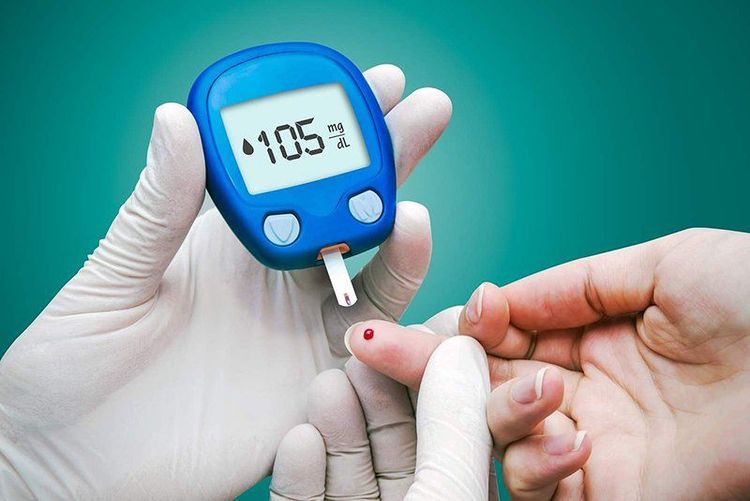
Ăn quá nhiều có thể dẫn tới bệnh tiểu đường
3.4. May impair brain function
Over time, overeating can harm brain function. Some studies show persistent overeating and obesity with mental decline in older adults, compared with those who don't overeat.
A study in older adults showed that being overweight negatively affects memory, compared with people of normal weight. That said, more research is needed to determine the extent and mechanism of mental decline associated with overeating and obesity.
Given that your brain is composed of about 60% fat, eating healthy fats like avocados, nut butters, fatty fish and olive oil can help prevent mental decline.
3.5. Can make you nauseous
Overeating often can cause nausea and indigestion. An adult's stomach is approximately the size of a clenched fist and can hold about 2.5 ounces (75mL) when empty, although it can expand to hold about 1 liter (950 mL).
Note that these numbers vary based on your size and how much you regularly eat. When you eat a large meal and start to reach the upper limit of your stomach's capacity, you may experience nausea or indigestion. In severe cases, this feeling of nausea can cause vomiting, which is your body's way of acutely reducing stomach pressure.
Although many over-the-counter medications can treat these conditions, the best way is to adjust your portion sizes and eat more slowly to prevent these symptoms in the first place.
3.6. May cause a lot of gas and bloating
Eating large amounts of food can strain the digestive system, causing gas and bloating. Gas-producing foods that people tend to overeat are spicy and fatty foods, as well as carbonated beverages like soda. Beans, some vegetables, and whole grains can also produce gas, although they shouldn't be eaten in excess often.
Furthermore, eating too quickly can promote bloating and flatulence due to a large amount of food quickly entering your stomach. You can avoid gas and bloating by eating slowly, waiting until after a meal to drink fluids, and reducing the portion of foods that contain a lot of gas.

Ăn một lượng lớn thức ăn có thể làm căng hệ tiêu hóa, gây đầy hơi và chướng bụng
3.7. Can make you sleepy
After eating too much, many people become lethargic or tired. This may be due to a phenomenon known as reactive hypoglycemia, in which your blood sugar drops shortly after eating a large meal.
Low blood sugar is often associated with symptoms such as drowsiness, sluggishness, fast heartbeat and headaches. Although not fully understood, the cause is thought to be related to an overproduction of insulin.
Although most common in people with diabetes who use too much insulin, reactive hypoglycemia can occur in some people from overeating.
Please dial HOTLINE for more information or register for an appointment HERE. Download MyVinmec app to make appointments faster and to manage your bookings easily.





